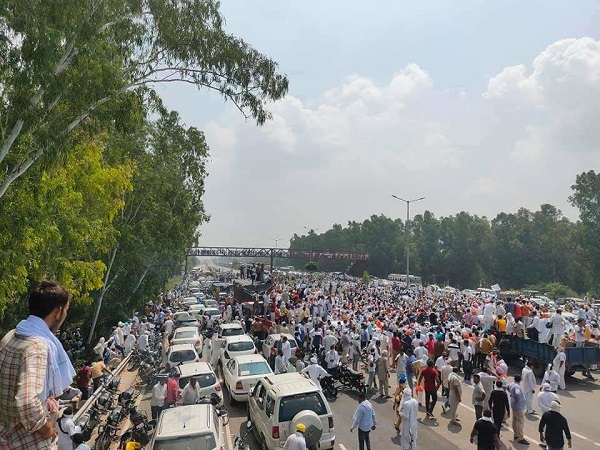
By Anil Shukla
The farmers are in the street agitating for the last two months and with the 11th round of talks also ending in a negative note, the immediate solution to the problem seems far away.
The three agriculture laws relating to farmers have been controversial since the beginning. When a law is enacted, some basic parameters need to be followed. First, the law should be within the constitutional limit. Second, it should be drafted only after discussion with the stakeholder and third, the law is in public interest and does not conflict with other laws. The three farm laws do not meet these criteria. Because their constitutional integrity has been disputed since the beginning.
The Constitutional Bench of the Supreme Court would probably be in a position to end the deadlock. If the same law was passed in Parliament after consideration of the Standing Committee of Parliament, then perhaps this situation would have averted. But the bills were passed from Parliament and became the laws after the signature of the President.
In such a condition, the anomalous situation arising out of the disputed agricultural laws can be resolved either by the Constitution Bench of the Supreme Court or by the Government by withdrawing the law through Parliament. While the central government is willing to postpone the laws for some time, from one to one and a half years. On the other hand, the farmers are adamant on repealing the entire law. In such a situation, it is necessary to solve the problem in a constitutional manner soon. If action is taken in a systematic manner, the problem could find an amicable solution.
First of all, the Central Government should stop the enforcement of all the three laws till the Supreme Court gives its decision on the constitutional validity of these laws. Second, the law itself will lapse if the law is declared unconstitutional by the Supreme Court. Third, in the event of the Supreme Court declaring the law constitutional, it will pave the way for consideration of the merits and demerits of the disputed three.
Fourth, in such a situation the law should be sent to the Standing Committee of Parliament for consideration for complete amendment. The committee should deliberate the points with the farmers and agriculture experts besides persons concerned and prepare its report accordingly. After the report comes, amended law should be passed by the Parliament.
Fifth, as far as the minimum support price is concerned, legislation should also be made on this subject to sell crops outside the mandis or mandis. This should also be considered by the people concerned.
In view of the outbreak of COVID-19, the Republic Day celebrations, chilling climate and normal social activities, the standoff between the farmers and the government is neither in the interest of the public nor the country.



